BRASILIA, Brazil (May 13, 2011) - The Brazilian armed forces believes the U.S. Army South-led Peacekeeping Operations - Americas 2011 exercise has helped its country in its preparations to host two of the world's largest sporting events.
"We will be able to gain from all the lessons we have learned here and move forward," said Brazilian Maj. Gen. Fernando S. N. Ferreira, PKO-A 11 co-director. "Everything we gathered here will be vital to our ability to plan for the 2014 World Cup and 2016 Olympics."
ARSOUTH participated in the closing ceremony of PKO-A 11 in Brasilia, Brazil, May 13. PKO-A 11 is an annual, U.S. Army South-led, regionally oriented command post exercise involving partner nation armed forces from within the Western hemisphere. ARSOUTH was the executive planning agent for PKO-A 11.
The two-week command post exercise, which kicked off May 2, is the capstone event in a series of professional development engagements and command post exercises. These activities increased participants' capabilities and prepared partner nations to conduct peacekeeping and humanitarian assistance operations worldwide.
PKO-A 11 was designed to bring nations together to enhance regional relations, reinforce security arrangements, promote interoperability and obtain support for mutual security interests. In addition, the professional development engagements promote and improve cooperative measures and collective military capabilities, and support and enhance democracy and stability in the Latin American and Caribbean region.
During PKO-A 11, participants negotiated their way through a mock election process. The scenario forced members of 16 different nations to work together to ensure the peaceful completion of a fictitious country's elections, and also react to a simulated, mid-scenario earthquake that required the participants to plan and provide humanitarian assistance without losing site of the primary mission.
"The intent was for us to be able to capitalize on the abilities and the experiences of all the countries involved in terms of peacekeeping operations," said Maj. Gen. Luis R. Visot, the PKO-A 11 co-director and commanding general of the 377th Theater Sustainment Command. "The key here was the exchange of ideas and to build trust in each other."
Besides the technical skills developed during PKO-A 11, a secondary goal for the exercise was to develop working relationships among the many partner nations involved.
"I know the friends I made here will help in the future," said Brazilian Col. Paulo Eduardo Monteiro, a PKO-A 11 participant. "It really helps when you make a call and you recognize the voice on the other end. When you ask for help, you know he'll come and support you."
Lt. Col. Obie A. M. Spratling, SOUTHCOM's planning officer, also believes the working relationships are a vital component in executing future peacekeeping operations.
"It's really important because it gives the partner nations a chance to come together to develop lasting relationships," he said. "It really helps to train on key complex tasks when you know the person you are training with. As the countries get together, there are fewer barriers involved."
During his closing ceremony speech, Visot shared his belief that the skills learned and the close relationships established at PKO-A 11 will be crucial in supporting ARSOUTH's mission in the Western hemisphere, and will go even further in providing tangible results in the form of supporting democracy and stability for all the partner nations.
"The highlight of this exercise has been the close friendships that we have established," said Visot. "Building that trust gives us the ability to stay focused on our mission and that mission is to save lives and find out what can we do to better provide for humanity."
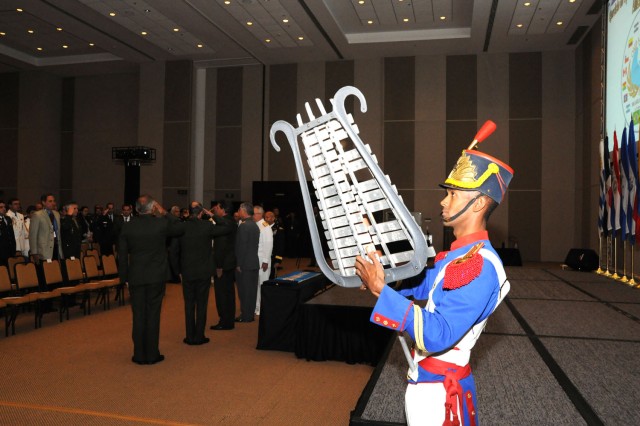
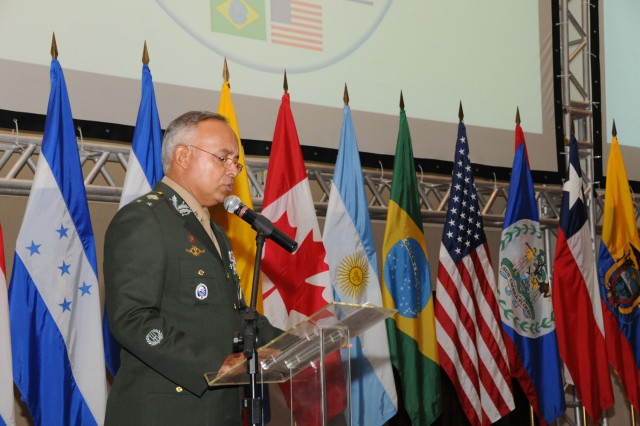
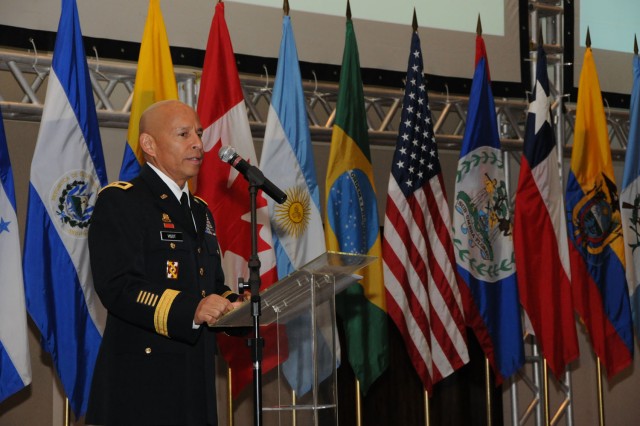
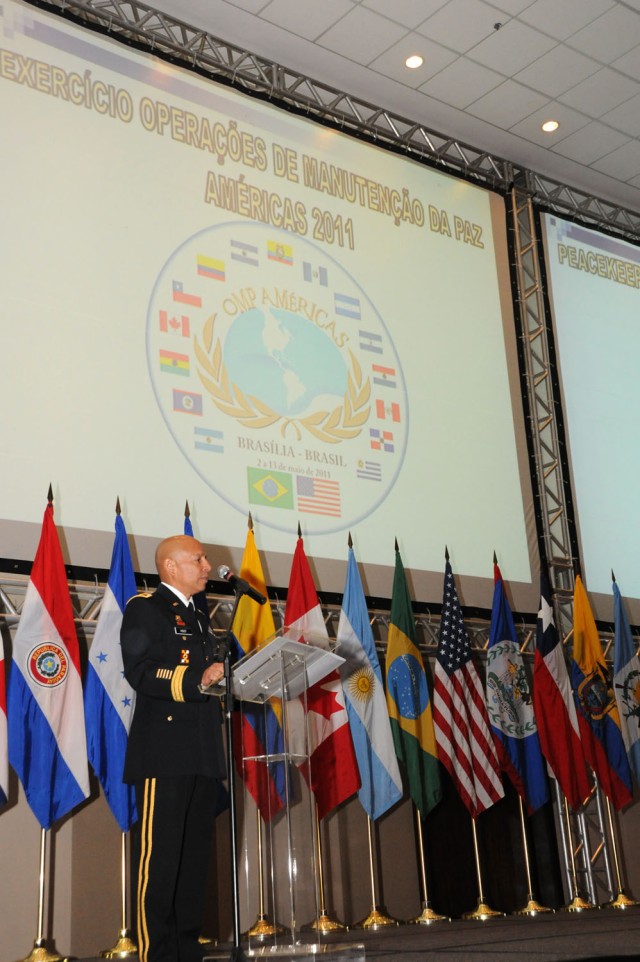
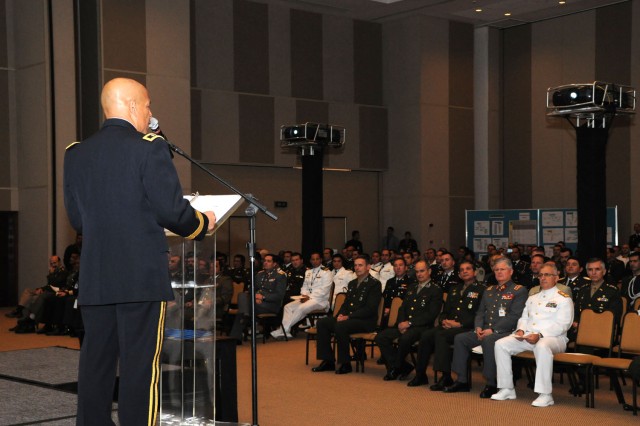
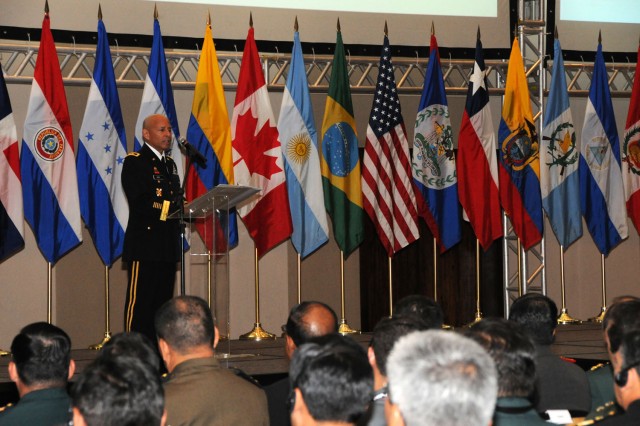
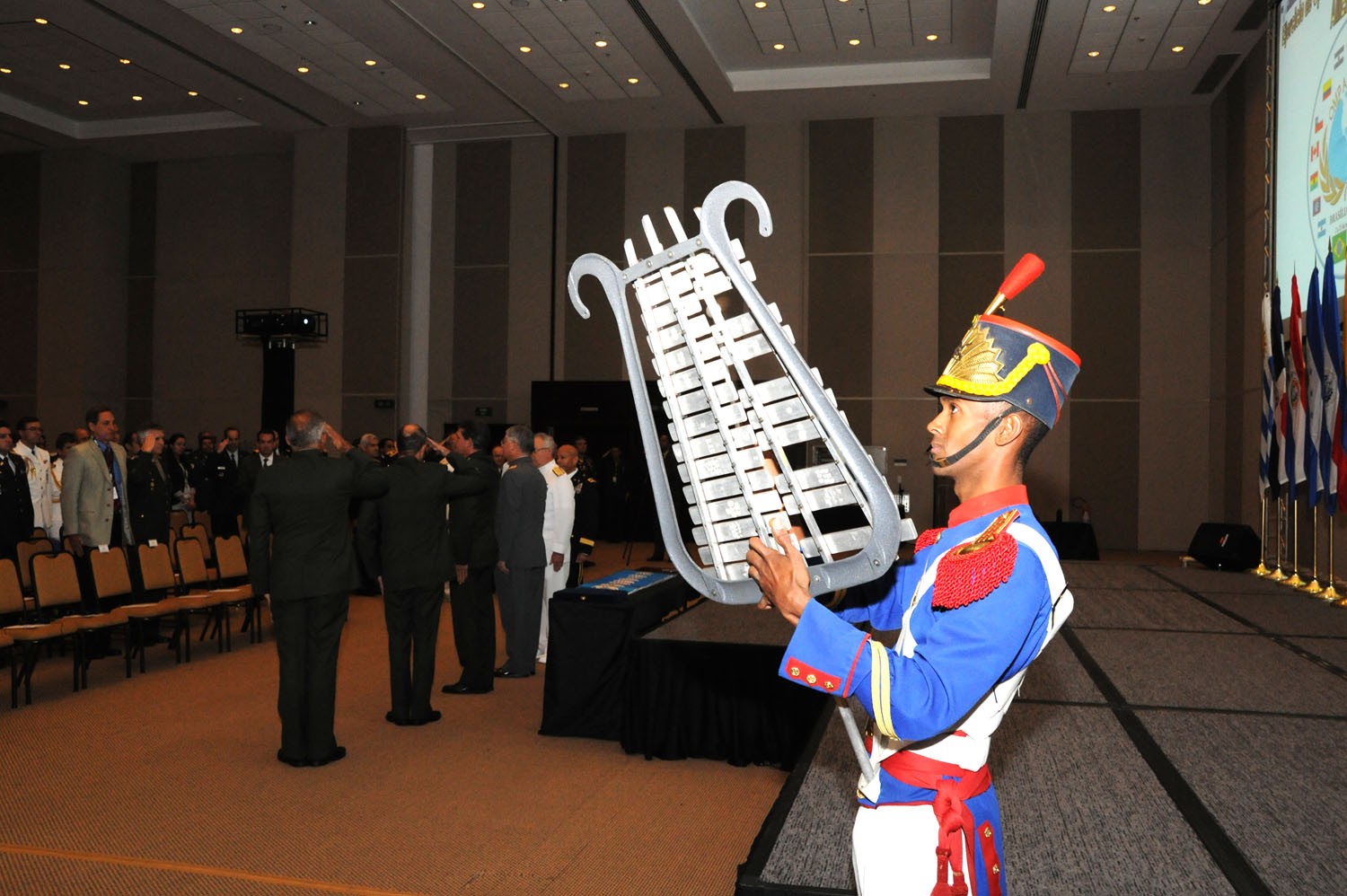
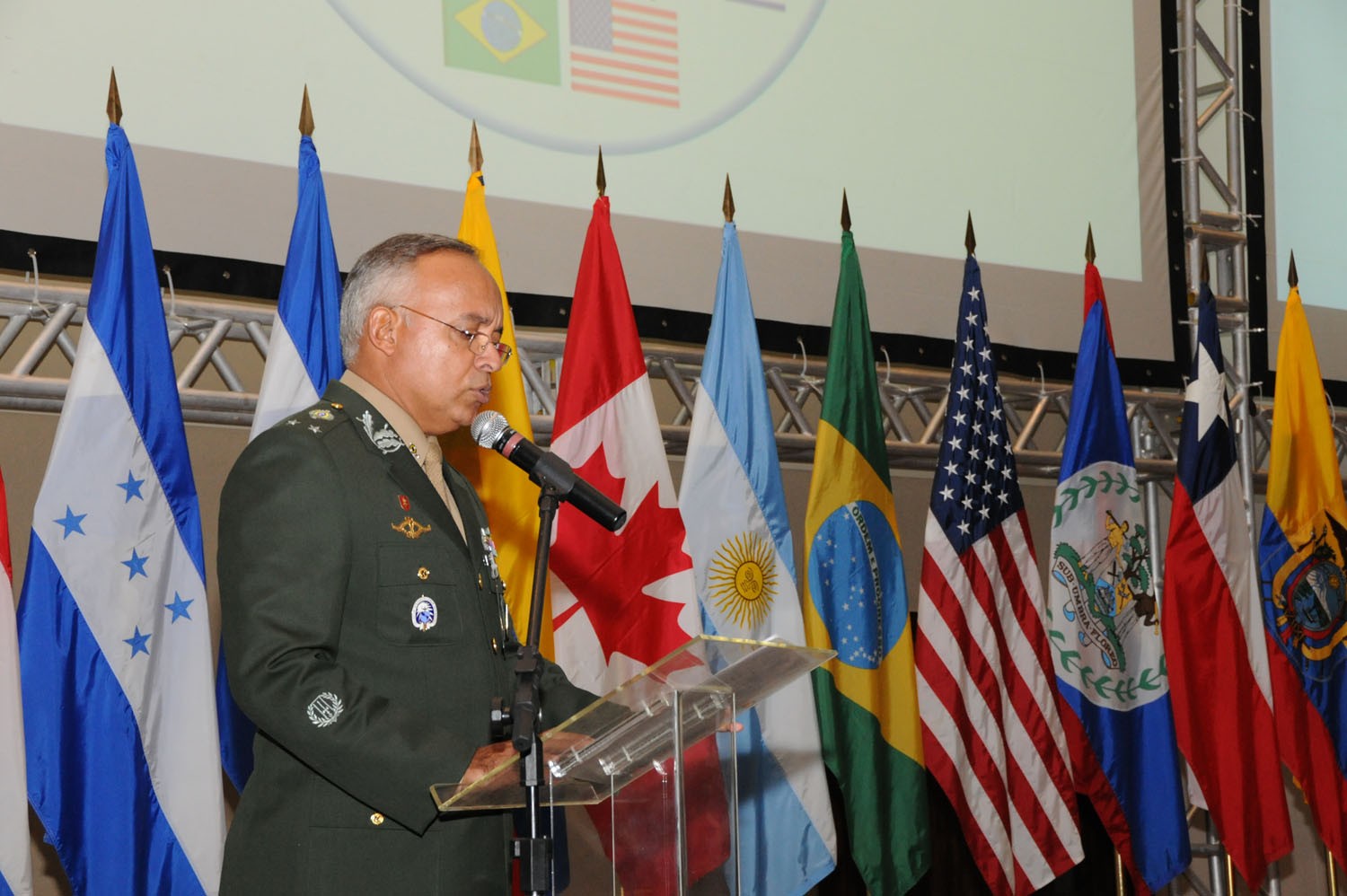
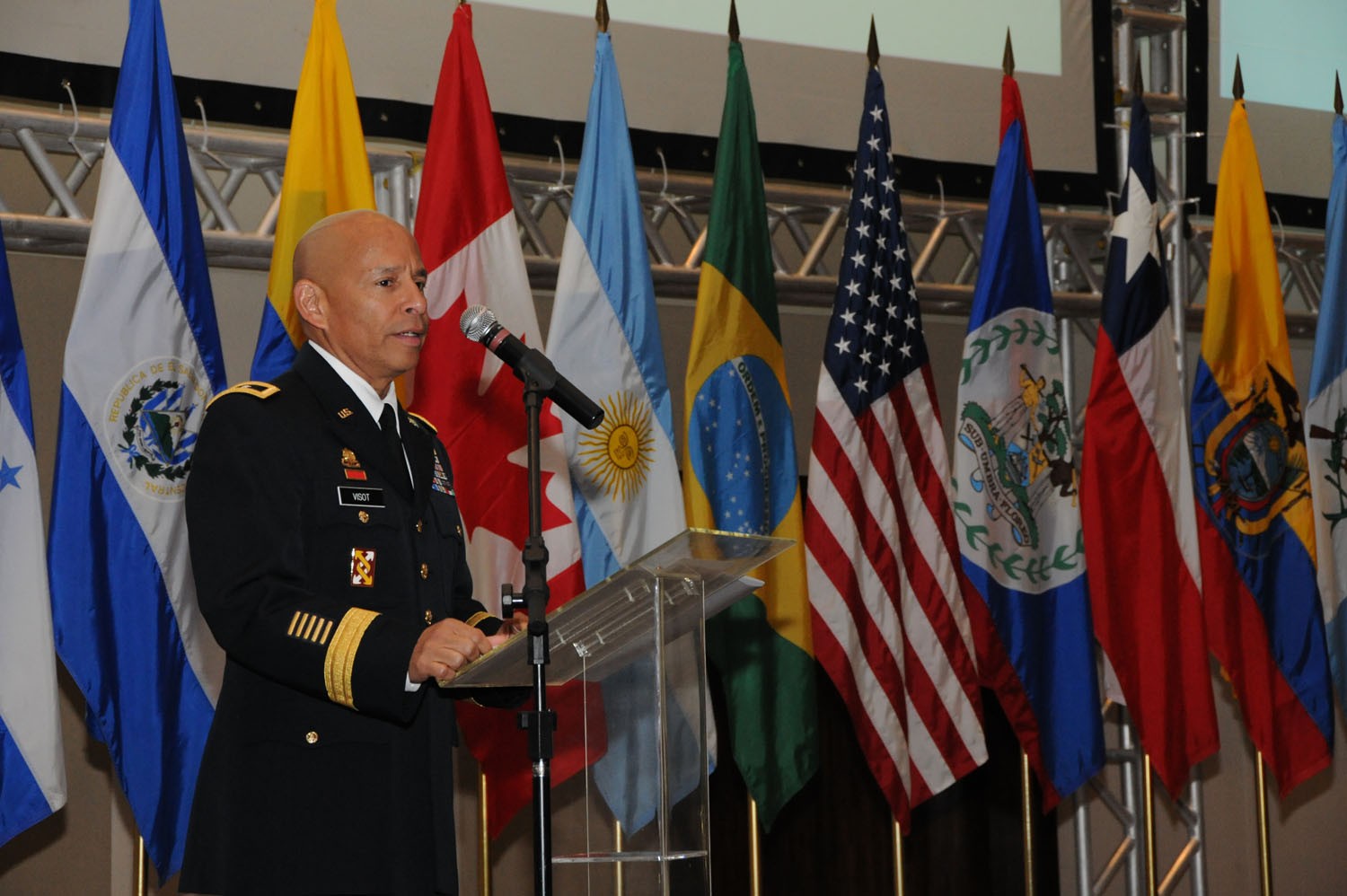
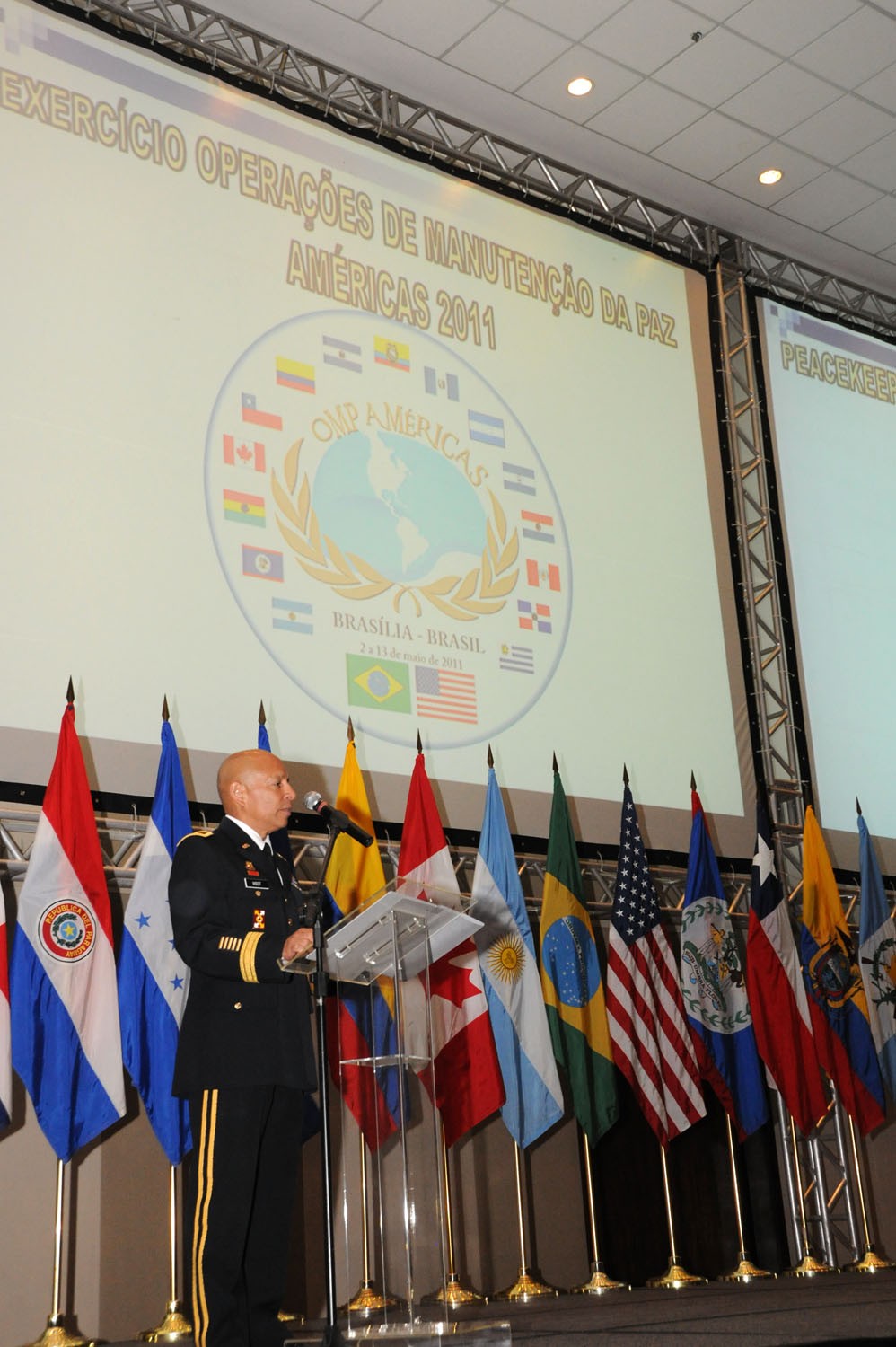
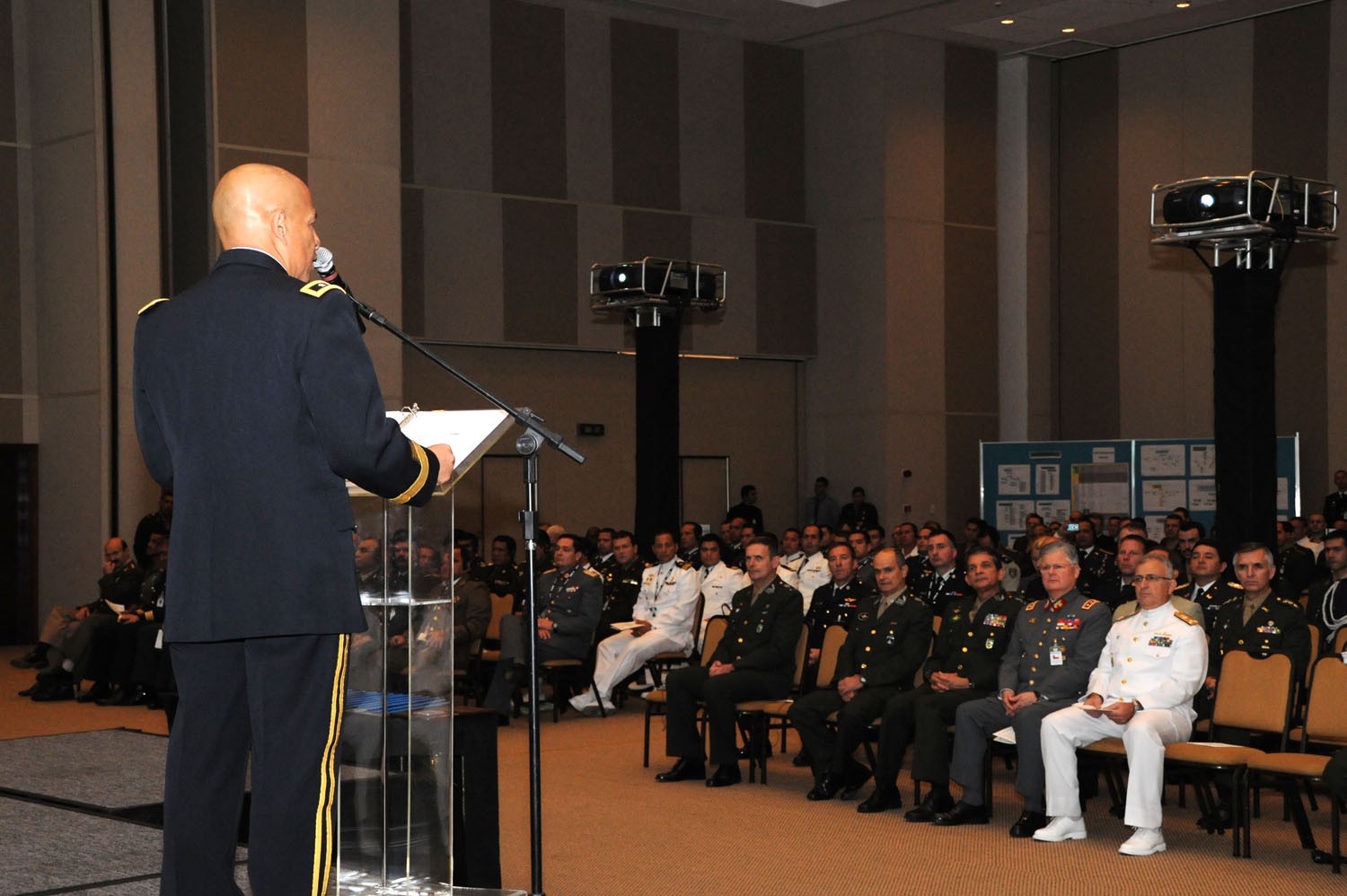
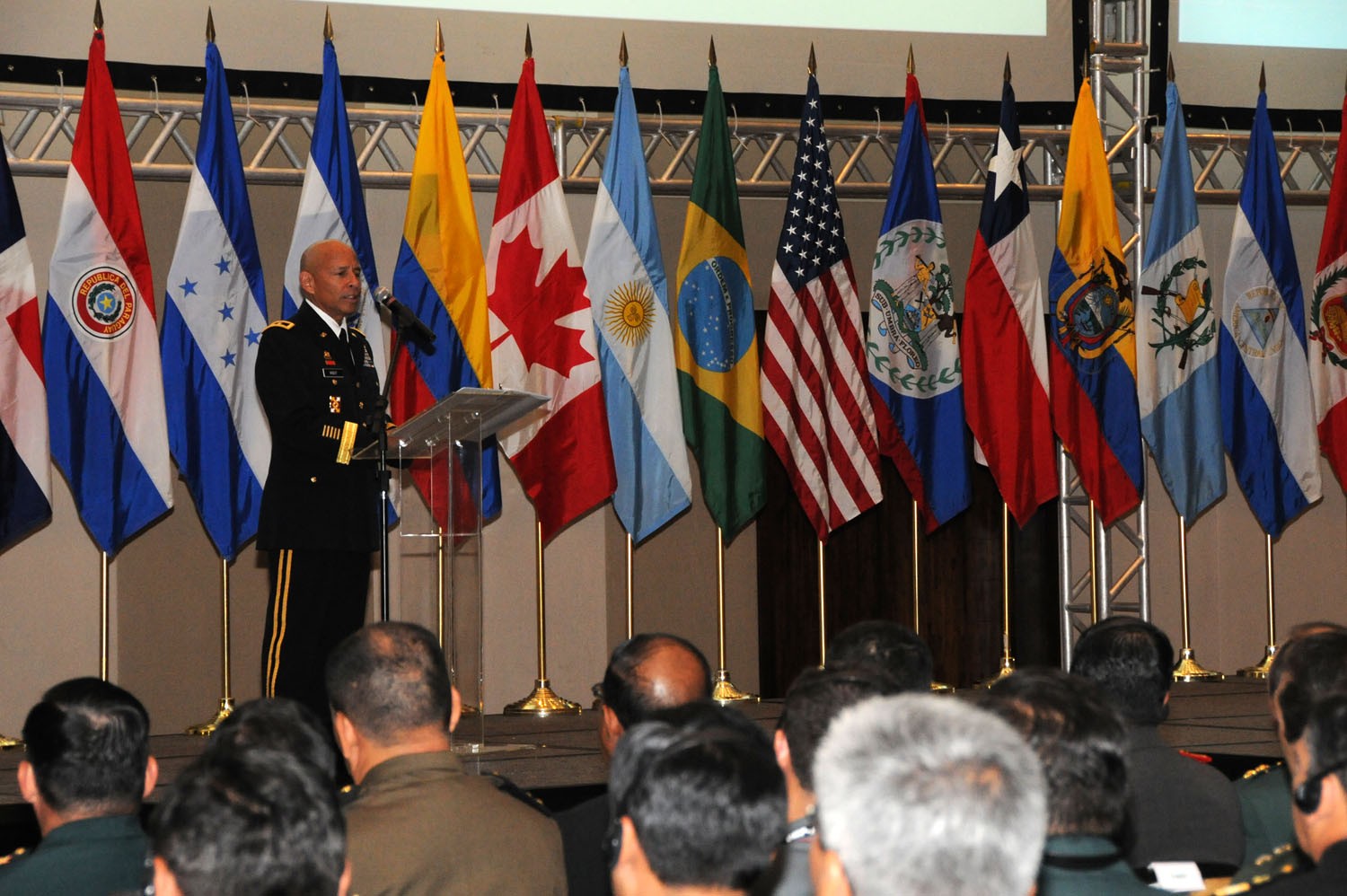
Social Sharing